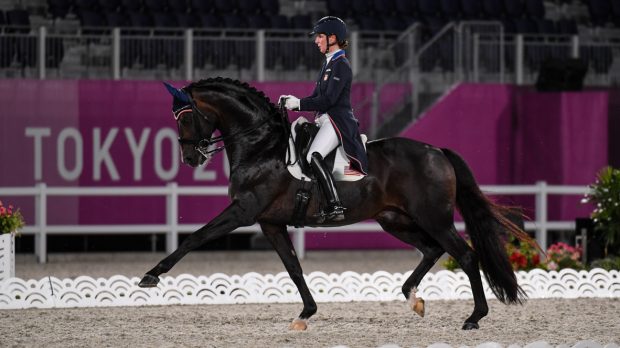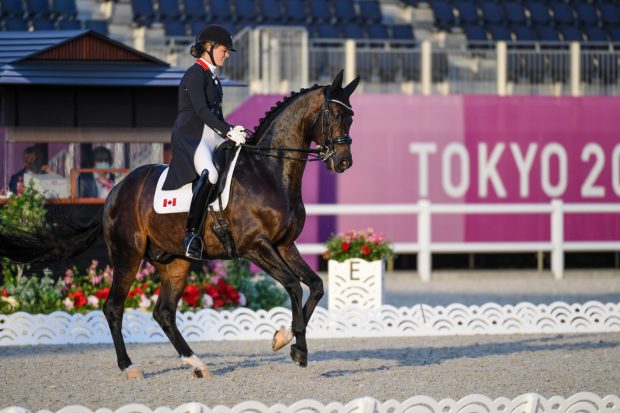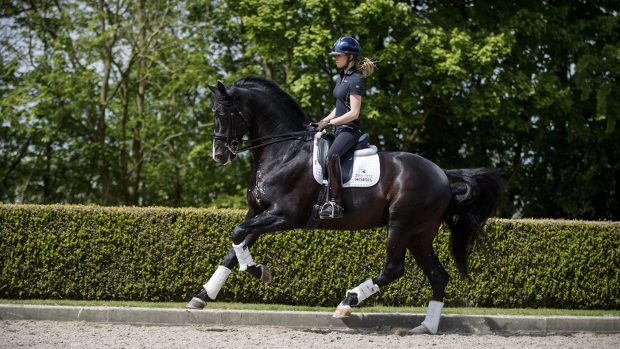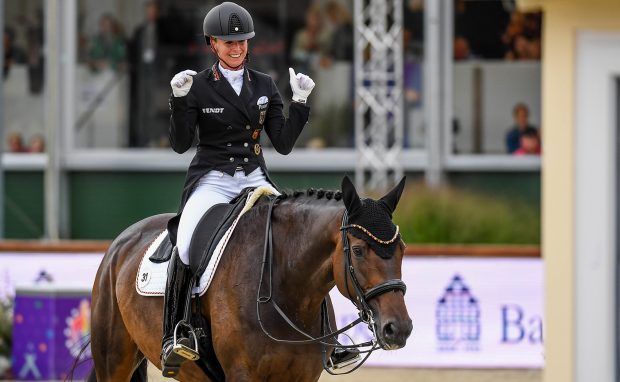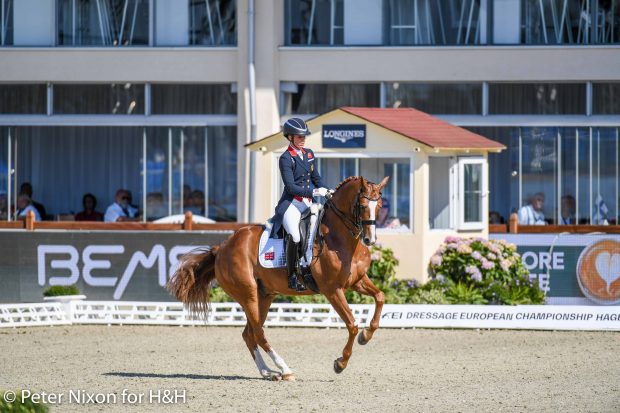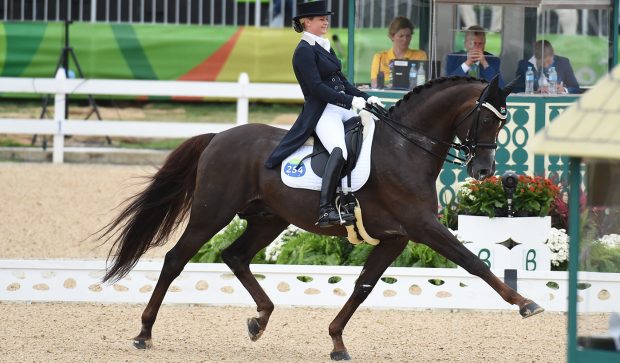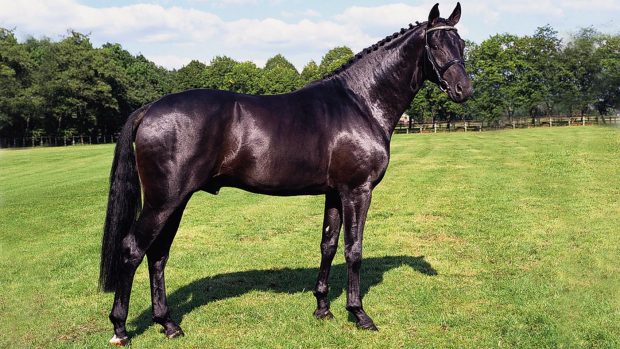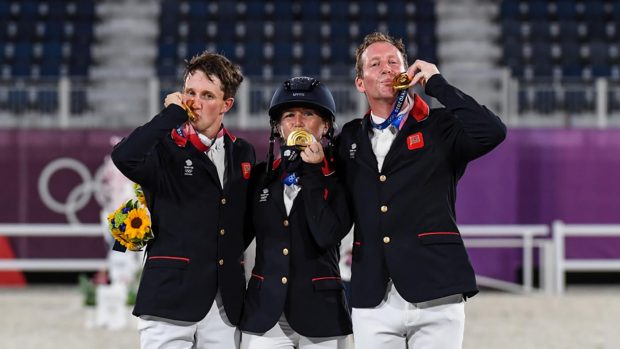Tokyo Olympic Games: dressage
Welcome to Horse & Hound’s coverage of the dressage competitions at the Tokyo Olympics. Our team of journalists, both on location in Japan and working from here in the UK, have been keeping you up to date with all the Olympic dressage news as it happened throughout the competition.
Who won the Tokyo Olympic dressage medals?
Germany demonstrated her dominance in the sport once again, taking both team gold and individual gold and silver medals. Team USA won the team silver with Britain in bronze.
The new individual Olympic dressage champion is Jessica von Bredow-Werndl, who pipped her team mate Isabell Werth to the gold medal. Britain’s Charlotte Dujardin won the individual bronze with her 10-year-old Gio.
Britain’s Carl Hester finished in eigth place individually with En Vogue (81.82%), while Olympic debutante Lottie Fry finished 13th with Everdale (80.61%).
When and where did the Olympic dressage take place?
The Olympic dressage competitions were held on 24-25 and 27-28 July 2021 at the equestrian park in Tokyo’s Heritage Zone. The team medals were decided on 27 July. The individual medals were won on 28 July.
Can I replay the Olympic dressage competitions?
Yes, check out our helpful guide explaining how to watch the Olympic dressage
Learn more about dressage at the Olympics
Olympic dressage news, reports and more...
-

-
-

‘Tell your foals about our adventures’: gold medal-winning horse retires to stud
-

‘I know in my heart this is the best decision for him’: stallion who became Tokyo Olympics sensation is retired
-

‘He taught me so many life lessons’: Tokyo Olympic dressage horse retires age 16
-

Meet Lottie Fry’s H&H cover star Everdale: ‘He is like a machine underneath you’
-

‘The fear of mistakes knocked on my door every day’: Jessica von Bredow-Werndl on the ‘mental toolbox’ that helped her win Olympic gold
-

The unexpected purchase who became a national treasure in 2021: charting Gio’s remarkable dressage career to-date
-

‘I’ll love him for eternity’: Top dressage horse dies following Tokyo Olympics withdrawal
-

Sandro Hit’s legacy in pictures: check out some of the late legendary stallion’s best offspring
-

H&H’s eventing editor Pippa Roome: ‘Is three to a team at the Olympics here to stay?’
Olympic dressage: what you need to know
Who will be on the Olympic dressage teams?
Countries have selected their Olympic dressage teams so we now know who will be heading to Tokyo, including who has been selected for the British Olympic dressage team.
Who is likely to win a medal?
The dressage at the Tokyo Games will be following a new format with the grand prix special test being used to decide the Olympic dressage team medals. The individual medals will be awarded after the freestyle.
With 15 teams of three riders taking part, Germany, Britain, Denmark, Sweden and the Netherlands are most likely to be fighting it out for the podium places in the team competition.
Does Britain have a good chance of winning a medal?
Yes, Great Britain has a good chance to win both team and individual medals in the Olympic dressage competition. You can find out more by reading our Olympic dressage medal predictions.
What’s the Olympic dressage competition format?
The Olympic dressage competition comprises the grand prix, grand prix special and grand prix freestyle to music. The grand prix acts solely as a qualifier for the special and the freestyle. The team medals will be awarded based on the results of the grand prix special. The freestyle will decide the individual medals.
How many riders in an Olympic dressage team?
There will be three horse and rider combinations in each team with all scores to count, plus one reserve who can be substituted in on veterinary or medical grounds up until two hours before the team final — which is the grand prix special.
Essential reading
• H&H’s beginners’ guide: what is dressage at the Olympics
• H&H’s full expert guide to the Olympic dressage format
When did dressage become an Olympic sport?
Dressage was first seen in the Olympics in the 1912 Games in Stockholm with only men allowed to compete. This restriction was lifted in 1951 and the Helsinki Games in 1952 was the first to see women in the saddle. Denmark’s Lis Hartel became the first female Olympic equestrian and the first female medalist winning individual silver. Her achievement was all the more impressive because she was paralysed from the knee down as a result of contracting polio.


